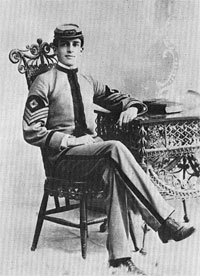|
Japanese Government-issued Philippine Peso
During World War II in the Philippines, the occupying Japanese government issued a fiat currency in several denominations; this is known as the Japanese government-issued Philippine peso (see also Japanese invasion money). The Second Philippine Republic under President José P. Laurel outlawed possession of guerrilla currency, and declared a monopoly on the issuance of money, so that anyone found to possess guerrilla notes could be arrested or even executed. Some Filipinos called the fiat peso " Mickey Mouse money". Many survivors of the war tell stories of going to the market laden with suitcases or "''bayóng''" (native bags made of woven coconut or '' buri'' leaf strips) overflowing with the Japanese-issued bills. According to one witness, 75 "Mickey Mouse" pesos, or about 35 U.S. dollars at that time, could buy one duck egg. In 1944, a box of matches cost more than 100 ''Mickey Mouse'' pesos. These bills were often used by American psychological warfare personnel as propag ... [...More Info...] [...Related Items...] OR: [Wikipedia] [Google] [Baidu] |
Second Philippine Republic
The Second Philippine Republic, officially known as the Republic of the Philippines ( tl, Repúbliká ng Pilipinas; es, República de Filipinas; ja, フィリピン共和国, ''Firipin-kyōwakoku'') and also known as the Japanese-sponsored Philippine Republic, was a Japanese puppet state established on October 14, 1943 during the Japanese occupation of the islands. Background After the Japanese invasion of the Philippines, President Manuel L. Quezon had declared the national capital Manila an "open city", and left it under the rule of Jorge B. Vargas, as mayor. The Japanese entered the city on January 2, 1942, and established it as the capital. Japan fully captured the Philippines on May 6, 1942, after the Battle of Corregidor. General Masaharu Homma decreed the dissolution of the Commonwealth of the Philippines and established the Philippine Executive Commission (), a caretaker government, with Vargas as its first chairman in January 1942. KALIBAPI — (Tagalog for the ... [...More Info...] [...Related Items...] OR: [Wikipedia] [Google] [Baidu] |
Psychological Warfare
Psychological warfare (PSYWAR), or the basic aspects of modern psychological operations (PsyOp), have been known by many other names or terms, including Military Information Support Operations (MISO), Psy Ops, political warfare, "Hearts and Minds", and propaganda. The term is used "to denote any action which is practiced mainly by psychological methods with the aim of evoking a planned psychological reaction in other people". Various techniques are used, and are aimed at influencing a target audience's value system, belief system, emotions, motives, reasoning, or behavior. It is used to induce confessions or reinforce attitudes and behaviors favorable to the originator's objectives, and are sometimes combined with black operations or false flag tactics. It is also used to destroy the morale of enemies through tactics that aim to depress troops' psychological states. Target audiences can be governments, organizations, groups, and individuals, and is not just limited to ... [...More Info...] [...Related Items...] OR: [Wikipedia] [Google] [Baidu] |
Hyperinflation
In economics, hyperinflation is a very high and typically accelerating inflation. It quickly erodes the real value of the local currency, as the prices of all goods increase. This causes people to minimize their holdings in that currency as they usually switch to more stable foreign currencies. When measured in stable foreign currencies, prices typically remain stable. Unlike low inflation, where the process of rising prices is protracted and not generally noticeable except by studying past market prices, hyperinflation sees a rapid and continuing increase in nominal prices, the nominal cost of goods, and in the supply of currency. Typically, however, the general price level rises even more rapidly than the money supply as people try ridding themselves of the devaluing currency as quickly as possible. As this happens, the real stock of money (i.e., the amount of circulating money divided by the price level) decreases considerably.Bernholz, Peter 2003, chapter 5.3 Almost all ... [...More Info...] [...Related Items...] OR: [Wikipedia] [Google] [Baidu] |
Office Of Strategic Services
The Office of Strategic Services (OSS) was the intelligence agency of the United States during World War II. The OSS was formed as an agency of the Joint Chiefs of Staff (JCS) to coordinate espionage activities behind enemy lines for all branches of the United States Armed Forces. Other OSS functions included the use of propaganda, subversion, and post-war planning. The OSS was dissolved a month after the end of the war. Intelligence tasks were shortly later resumed and carried over by its successors the Department of State's Bureau of Intelligence and Research (INR), and the independent Central Intelligence Agency (CIA). On December 14, 2016, the organization was collectively honored with a Congressional Gold Medal. Origin Prior to the formation of the OSS, the various departments of the executive branch, including the State, Treasury, Navy, and War Departments conducted American intelligence activities on an ''ad hoc'' basis, with no overall direction, coordination, o ... [...More Info...] [...Related Items...] OR: [Wikipedia] [Google] [Baidu] |
Douglas MacArthur
Douglas MacArthur (26 January 18805 April 1964) was an American military leader who served as General of the Army for the United States, as well as a field marshal to the Philippine Army. He had served with distinction in World War I, was Chief of Staff of the United States Army during the 1930s, and he played a prominent role in the Pacific theater during World War II. MacArthur was nominated for the Medal of Honor three times, and received it for his service in the Philippines campaign. This made him along with his father Arthur MacArthur Jr. the first father and son to be awarded the medal. He was one of only five men to rise to the rank of General of the Army in the U.S. Army, and the only one conferred the rank of field marshal in the Philippine Army. Raised in a military family in the American Old West, MacArthur was valedictorian at the West Texas Military Academy where he finished high school, and First Captain at the United States Military Academy at West Po ... [...More Info...] [...Related Items...] OR: [Wikipedia] [Google] [Baidu] |




